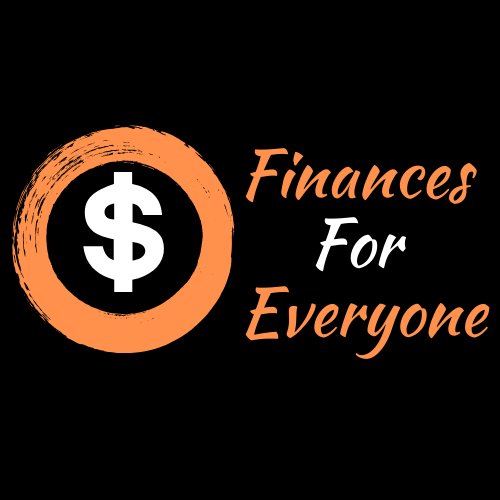Real Estate Investing Benefits-The Full Guide
Short Term and Long-Term Benefits
When you think about Real Estate Investing Benefits there are probably a few that come to mind. Maybe even a few buzz words that get thrown around a lot such as passive income, cash flow and the ability to quit your nine to five job. While those are some benefits, very few articles truly go into the long list of amazing benefits you can attain in real estate. I will break out some of the benefits and you can get all the resources you need to learn about real estate right here on Finances For Everyone.
Check out more blog posts here to learn more about real estate investing.
Here is a quick overview of what we will go over today. Feel free at anytime to use the below navigation menu to jump to any section you want to check out. There are two main types of Real Estate Investing benefits, short term and long-term benefits. Short term benefits are what a lot of people think about when they talk about creating monthly income. However, Real Estate really starts to pay off when we consider the long-term benefits. Learning about the benefits of both short- and long-term benefits can be important because it can help you to determine how you want to invest. Meaning, if you are into the short-term aspects of investing you may get into flipping houses, but if you want both short and long term benefits you may get into rental investing.
You can’t get anywhere in life by just by learning about real estate benefits, eventually you have to take action click here for The Real Estate Investing 7 Step Guide.
Navigation Menu:
Short Term and Long-Term Benefits
Short Term Benefits
- Multiple Streams of Income in One Property
- Cash Flow/ Steady Monthly Income
- Tax Benefits
- Semi-Passive Income
- More Control
- Portfolio Diversification
- Hard asset
- Leverage
Long Term benefits
- Legacy/ Wealth building
- Flexibility
- Loan Pay Down
- Help others get a home
- Improve the Community
- Borrow Tax Free
- Hedge Against Inflation
- Appreciation
Click here for our Finances For Everyone YouTube Chanel
Short Term Benefits

Now let’s go into the short-term real estate investing benefits. There are so many ways you can benefit short term depending on your strategy. I won’t go into details into all the strategies of investing in real estate short term but just focus on the benefits. Now some of short-term investing strategies include the increasingly popular flipping, but you can also dabble in wholesaling. However, the main strategy I enjoy is renting out properties because you get the best of all the short-term benefits compounded with long term benefits.
Multiple Streams of Income in One Property
Income as we usually refer to it is money that is received on a regular basis for work or through investments. Depending on how you view income can change how you view what real estate can do for you. Below I will go into some of the “hidden” ways that you can get more money in your pocket in addition to the more obvious ways that people generally think about with real estate investing.
Cash Flow/ Steady Monthly Income
The first and most obvious method is steady monthly income or cash flow. Cash flow is essentially the money that you have left after your expenses. Understanding cash flow is key and being able to calculate it is going to determine if you can be successful. Let’s look at a example of a cash flow analysis:
Let’s say you have a single-family home you want to buy and you know that you can rent it for $2,000 a month based on other houses in that neighborhood
Rental Income each month before expenses: $2,000
What you have to do is deduct all expenses, which means you have to accurately predict what those expenses are going to be based on other homes in the area. The first expense is your mortgage expense. Let’s say you buy a $200,000 house put 20% down ($40,000) and take out a 30-year mortgage at a 4% interest rate. Your monthly payment would be $763.86.
- House Cost: $200,000
- 20% Down payment: $40,000
- Total Mortgage (House Cost-20% down): $160,000
- Interest rate: 4%
- Term: 30 years
- Mortgage Payment (before taxes and insurance): $763.86
But wait we can’t forget about taxes or insurance. So, you go to your local tax assessor’s office and figure out the tax per year is $3600 or $300 a month. Then you call up some insurance companies and figure out it will cost $100 a month for insurance. Your total mortgage payment is going to be: $1,163.83.
- Tax Per year: $3,600
- Tax per month: $300
- Insurance per month: $100
- Total Mortgage Payment with taxes and insurance: $1,163.83
Finally, if you are going to be a good landlord it is smart to save for other expenses. These numbers are made up for this example, so use what works best in your area. The first expense will be vacancy. Assume you will have a 10% vacancy per year so just over a month vacant per year. Each month you will set aside 10% of your total rent so $200. Now let’s save for maintenance call it 5% of monthly rent so $100 a month. Then lets account for what is called capital expenditure, which is a big expense such as a roof replacement, call it another 5% so $100 a month. There are always other things you can save for or set aside if needed. If you pay for the water bill, lawn care or snow removal you can save for those as needed. With the numbers we have your total expenses are $1,563.83. Rental income minus expenses is your cash flow. $2000-$1,563.83= $436.17 cash flow.
- Vacancy 10%: $200
- Maintenance 5%: $100
- Cap Ex 5%: $100
- Mortgage Payment: $1,163.83
- Total Expenses: $1,563.83
- Rental Income: $2,000
- Income-Expenses: $2000-$1,563.83= $436.17
- Cash Flow/ Monthly Income: $436.17
Return on Investment

Now that you have figured out your cash flow some real estate investing benefits are immediately shown. The biggest of which is your return on investment. You can look at this in a couple of different ways to show the benefits. The first is cash on cash return. All this means is how much money you are making compared to the cash which you but down. The cash in this example is the 20% you put down for the mortgage or $40,000. So how much are you making per year on the cash you put in? In this example you take your cash flow $436.18 times 12 which equals $5,234.04. Now to figure out your cash on cash return you divide $5,234.04 by $40,000= 13.08% So in this analysis your return on the money you put in is pretty good. 13% is a great return compared to what you could get from any stock or mutual fund investment. This is only one part or the benefit, the other part we will talk about is paying down the mortgage, appreciation of the property and tax benefits.
- Cash paid on house: $40,000
- Monthly cash flow: $436.18
- Yearly cash flow (monthly cash flow x 12 months): $5234.04
- Yearly cash flow/ cash put on house: 5234.18/40,000= 13.08% return
- Cash on Cash return: 13%
Spend as Your Income
Now that you have the cash in your pocket it is your to do what you want with. Some people what to live off their real estate investment which is a great goal to aim for. If that is what you want to do you only have to figure out what your expenses are and how many rentals you need to live off of rental cash flow. If your expenses each month are $3,000 then you would need 7 rentals to replace your expenses. $3,000/436.18= 6.8 (round up to 7) Total money each month would be $3,054.26.
- Monthly personal expenses: $3,000
- 1 rental income: $436.18
- How many rentals do you need?
- $3,000/436.18=6.8 round to 7
- 7 rentals at $436.18: (7 x 436.18): $3,05426
Reinvest for Compound Growth
If you are spending your money each month then you are actually hindering your compound growth because you are taking the money out. Now if you don’t need or want to live off of the rental income there are so many options that you can do to reinvest the cash. First you could take the $5,234.04 (lets call it $5,200 for simplicity and reinvest it in the stock market. If you did that for 5 years and could make on average 10% you would have: $33,808. You would have made $7,829.67 in interest!
- Monthly contribution ($5,200/12=$433): $433
- Yearly Interest 10%
- Interest amount: $7,829.67
- Total Principal: $25,980
- Total Value: $33,809.67
Let’s imagine you did that with all 7 properties that you wanted to replace your income with. So putting $3,000 a month in investments over 5 years. You would have made: $234,247!
- Monthly contribution: $3,000
- Yearly Interest 10%
- Interest amount: $54,247.14
- Total Principal: $180,000
- Total Value: $234,247.14
As you can see reinvesting your income is the key to wealth building. Taking your money out is an option but it will limit your long-term wealth. Of course, you don’t have to leave your money in stocks you can take it out and buy more real estate and keep doing this over and over. If you put $40,000 down on each house that you buy you would be able to buy 5 houses with that $234,247.14 at the end of 5 years creating more passive income to invest and becoming more and more wealthy over time.
For a 100% FREE guide on real estate investing click HERE.

As I give examples of some of the tax benefits you can get from real estate remember, I am not a CPA and you need to talk to an accountant in your area. I am not giving any legal or tax advice in this entire article. Don’t make any assumptions until you talk to a tax accountant. That being said real estate real does provide a lot of potential tax benefits that sweetens the deal and provides even more real estate investing benefits. The tax benefits are some of the more hidden benefits since they are not as obvious and are always changing in one way or another.
Deductions: State/ Local Taxes
The first tax break that you can take as a deduction is when you pay state and local taxes. A tax deduction lowers your taxable income. For example, if you make $100,000 in a year and you pay $3,000 in state taxes on a rental property you can deduct or minus that $3,000 from your income so 100,000-$3,000 makes your tax liability only $97,000. The more deductions the better because that allows you to lower your tax liability. Now don’t confuse this with tax credits which are reducing the amount of taxes owed. Tax credits are obviously much better than deductions but there are not many tax credits in real estate. An example of a common tax credit in everyday life would be for having a child, which reduces taxes owed by $2,000 per child.
- Income: $100,000
- State tax: $3,000
- Tax Liability (100,000-3,000): $97,000
Deductions: Mortgage Interest
The other deduction that is a huge help is mortgage interest. If you have $160,000 mortgage you could deduct all the interest you paid that year even if it was paid by renters. The interest for that first year of $160,000 mortgage would be approximately $6,370. If we take the above example of $97,000 in income that is taxable after local taxes when you deduct mortgage interest you would only have to be taxed on $90,230.
- Taxable income (after state tax deduction): $97,000
- Mortgage Interest: $6,370
- New Tax Liability: $90,230
Deductions: Insurance, Maintenance, Repairs, Operating Expenses
As you can see, we are not done yet reducing you tax burden. Now we are on to insurance you can deduct, lets say it is $1,200 a year. Then let’s say you spend $500 on repairs/ maintenance and another $500 on operating expenses (mowing the grass/ snow removal etc.). Now you can reduce your liability by $2,200 so now you are only taxed on $88,030.
- Tax Liability (after taxes and interest deducted): $90,230
- Insurance: $1,200
- Maintenance/Repairs: $500
- Operating expenses: $500
- New Tax Liability: $88,030
Deductions: Depreciation
Almost done with the deductions and this one is depreciation. The way depreciation works is any property you buy you can depreciate over 27.5 years or 3.636% per year. So on a $200,000 house that equals out to $7,272 per year that you can also deduct. Which if you look at in the above example would bring your tax liability down to $80,758. Big guidelines you need to follow is you have to use the property for business or income producing activity, you own the property and a few other nuanced reasons. There also are some other detailed tax implications beyond the scope of this article having to do with depreciation recapture once you sell the property. Make sure you read up on the current rules and regulations.
- Tax Liability (after taxes, interest, repairs, insurance deducted): $88,030
- Depreciation on $200,000 property: $7,272 a year
- New Tax Liability: $80,758
1031 Exchanges
A 1031 exchange can be a powerful wealth building tool and thankfully it is built right into the tax law. Essentially a 1031 exchange is a way to sell a property take that money and buy a new property without paying taxes on the sale. Now there are a number of rules surrounding 1031 exchanges. For example, you have to:
- Buy the new property for the same price or more then the sale on your old property.
- Identify a property or properties you want to buy with-in 45 calendar days of the sale.
- Close on the new property within 180 days.
I think it is clear that taxes can slow down your wealth building. So here is an example of what a 1031 exchange can do for you. Let’s say you buy a property for $100,000 and it appreciates to $150,000. Now when you sell that property you can buy a new property for $150,000 or more and not get taxed. Let’s say that new piece of property appreciates to $180,000 after some minor repairs. Now you can do a second 1031 exchange and buy another property for $180,000 or more. You can continue to do that process until you decide to finally sell. Then of course you would have to pay the taxes owed but by that point you would have increased your equity and been making money on the rental income the entire time you were deferring your tax bill.
Semi-Passive Income

First, I want to get a small rant out of the way. I feel that people refer to real estate and passive income in the same breath but many people don’t mean the same things when they say passive. When some people talk of passive, they think of making money without doing any work like someone is just going to hand you money. While sure sometimes this can be partially true like buying a stock or mutual fund. I don’t believe real estate falls into the passive income category as firmly as some would like to make you think. That is why I titled this semi passive to try and be a little more accurate and honest. While it is true those months that you are receiving income from your rentals with no issues are great and during those times, I would agree real estate is pretty passive. However, other months it requires more work. Especially on purchasing the property getting it rented out and then of course the upkeep required with keeping everything fixed. While that may seem like a lot of work the benefits are numerous that you can’t get with a normal stock purchase.
More Control
Another of the real estate investing benefits is the fact that real estate gives you more control over your investments. When you invest in the stock market you have zero control on anything but what you purchase. If a company goes broke or gets bought by another company there is nothing you can do. However, with real estate you have control over much more of your investment. You choose the property, tenants, and management of the property. Not only do you have more control but you also get to be your own boss. Many people spend all their lives taking orders from a boss. In this aspect of your own rental business you have full control even if you keep your W-2 job. At least you know that you have control over your investments no matter what the stock market is doing.
Another of the real estate investing benefits is the fact that real estate gives you more control over your investments.
Portfolio Diversification

Don’t get me wrong I still invest in the stock market and the main reason is diversification. If there is anything, I have learned that is to not get into any one type of investment. That is why in the stock market I don’t just buy Apple or Microsoft stock. I buy across all sectors; energy, consumer goods, technology etc. That is where real estate shines because it is one more way to diversify your portfolio so if any one area gets hit you are not going to lose your life savings. A lot of people learned that lesson in 2008 when they were over leveraged in their properties and didn’t have enough savings to cover their expenses for any amount of time. Real estate fits well into a diversified portfolio.
Hard asset
Another of the Real Estate Investing benefits is the simple fact that it is a hard asset. It’s not like a cell phone that someone can simply pick up and steal it is entire property so it is relatively safe from disappearing or being stolen. Additionally, it is easy to borrow on. Since it is a hard asset you have the capability to borrow against it. If you had a property that was paid off but needed cash fast one great option is a HELOC or Home Equity Line of Credit where you still have access to your money that is very often caught up in the equity of your property. With real estate it is easy to access since most real estate is an appreciating asset overall.
Leverage
Leverage is another amazing benefit of real estate investing. Leverage is using debt to be able to purchase your property. It is great because leverage doesn’t require you to come up with all of the cash to get yourself started into real estate. Using others to pay off your investments is why people can make so much money overtime. However, the more leverage and risk you take the more careful you have to be in rough times. There is a balance and deciding for yourself the level of risk you are willing to take is one of the first things you should think about before investing.
Check out the Real Estate Deal Finding Toolkit Course to learn step by step how to find real estate deals.

Now let’s get into some of the long-term benefits of real estate investing. Of course, some of these will be beneficial in the short term but the true benefits of these are realized over the long haul. Real estate in particular is one investment that in general if kept for a long time will help you to be extremely successful.
Legacy/ Wealth building
One of the greatest real estate investing benefits is the ability to be able to leave a legacy to future generations through wealth building. Everyone looks back and says oh if I only would have bought that one stock back then I would be rich. Well the same thing is true for real estate. If you purchase a property and pay it off and then decide to pass it on to your children you are passing your wealth to future generations. Real estate is also different in the fact that you could sell the property and give the money to your heirs. However, giving an income producing property to your heirs is so much better. Yes, they could always sell the property, but by keeping the property and having it as a rental it will continue to produce income for a much longer time then just giving cash.
One of the greatest real estate investing benefits is the ability to be able to leave a legacy to future generations through wealth building.
Flexibility
Flexibility is what most people want in their life. The freedom to be able to do what you want you want when you want is an amazing benefit of having your own business. Having other people work for you and manage your properties is the key that gives you the freedom to be able to have the life that you want. There are not many 9 to 5 jobs that will allow you to pick up and go on a vacation. However, as you get more and more successful real estate is one area that can allow you to have all the freedom and flexibility you want out of life.
Loan Pay Down

If you do decide to take out a loan and use leverage to purchase real estate like most people do, then the loan pay down could be one of the biggest advantages of having rental properties. Some people are just looking at real estate as what kind of cash flow can I get out of this property? However even while you are getting that cash flow a long-term bonus is that you are having the loan payed down at the same tome. Now of course you will only see that money if you refinance or sell the house but iti s still is one of the largest benefits of investing. If we look at a 30-year $160,000 mortgage at 4% interest rate the longer you keep it the better off you will be. For example, after 1 year your mortgage is only payed down to $157,182.40. After 5 years you have payed that mortgage down to $144,716.32. After 10 years you are at $126,054.99. Finally, at 20 years you are at $75,448.67.
- Term 30 years
- Loan: $160,000
- Interest rate 4%
- Mortgage Balance after:
- 1 year: $157,182.40
- 5 Years: $144,716.32
- 10 Years: $126,054.99
- 20 Years: $75,448.67
As you can see if you factor that into your calculations on the property after 20 years of paying the loan off it is like you made an extra $4,227 a year. But you are realizing all of that gain at the end of the 20 years instead of getting that money each year. All that being said real estate gives you cash flow each month and it gives you tax breaks but the loan pay down is what truly pays off over time which is one of the huge real estate investing benefits.
Help others get a home
Something that everyone needs is a place to live. As a real estate investor, you are providing an awesome service to those around you. You can take pride knowing that you are giving high quality, well taken care of homes. Integrity is a trait that all investors need to have, and if you can’t take pride in the housing that you are providing then you should reevaluate your reasons for getting into real estate. No one should strive to be a slum lord but should try and provide as many people as they can with quality housing.
Improve the Community

Another awesome benefit of real estate investing is that you are also improving the community at the same time. When you buy a house and improve it you are of course helping yourself get an investment, but you are also improving the look of the neighborhood and the value of the homes around you. As more houses get improved in an area this only helps the property values to increase.
Borrow Tax Free
This is one of the real estate investing benefits that has its pros and cons however it is a benefit. Now most people don’t like to pay taxes but they still want to get access to their money. One way to do this is to borrow from the equity in your property. When you take out a loan and use the cash you don’t have to pay taxes on it because it is seen a loan. You can take out your money and have your renter pay down the loan amount again all without having to pay any taxes. The large con with this strategy is the fact that you will be paying mortgage taxes which is going to cost you more then the taxes will long term. However, if you don’t mind using leverage then this is a strategy you may want to explore.
Hedge Against Inflation
Inflation is an increase in prices and fall in purchasing value of money. That is why in 1950 bread only cost 12 cents and today it cost $2.35 on average. Over time the cost of goods increases. The way real estate is a hedge or protection against inflation is that as prices go up so does your home value and the cost of rent. To a normal real estate investor, the cost of goods going up isn’t as big of a deal because that means that so is the cost of your rents and that balances each other out. In other investments such as stocks this isn’t the case. While you may get an 8% return on investment when you take into account inflation your return may only be 5 to 7 percent.
Appreciation
Appreciation is the increase in a home’s value over time. Just like the loan pay down you really can’t take advantage of the benefits of appreciation until you refinance the home or sell it. Appreciation is a bonus on top of everything else mentioned. What appreciation really depends on is your local real estate market and similar houses in your area. While you are making monthly cash flow and having you loan payed down you are potentially making even more money as appreciation increases your home value. Let’s take the above example of the mortgage of $160,000 after 20 years being payed down to $75,448.67. If you take normal amounts of appreciation in the US generally a home’s value will increase by 3 to 5 percent per year. Let’s go with 3% per year for 20 years, at the end of that time your house could be worth $291,320. If you sold your house after 20 years you could potentially make $215,871.33 (before taxes of course). Which is a crazy return on investment especially when you take all of the other benefits into mind.
Check out the Real Estate Deal Finding Toolkit Course to learn step by step how to find real estate deals.
As you can see there are so many real estate investing benefits. Most people look at one or two benefits when they think of investing but as you can see there is a lot of benefit by investing your time and money buying a home. All of this knowledge of benefits is great but if you won’t take the knowledge and do something with it then you won’t get any of the amazing benefits. Don’t become one of those people who 20 years down the line looks back on their life and says I should have bought a property instead of buying that new car or wasting all of my money renting my whole life. Regrets are inevitable for all of us but you can take the action that is needed today to be able to be successful in the future.
To learn more about real estate investing and the next steps you can take check out my blog article on The Real Estate Investing 7 Step Guide.



